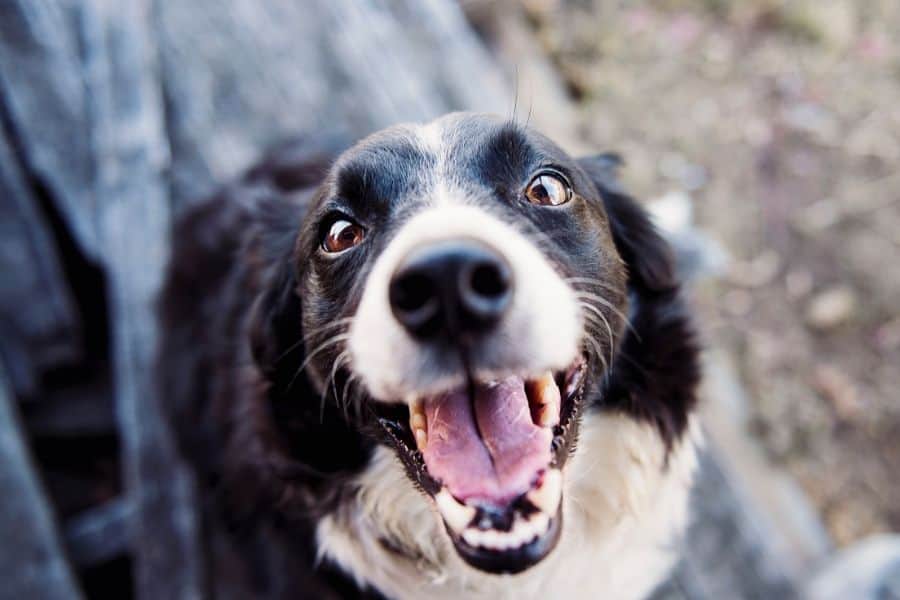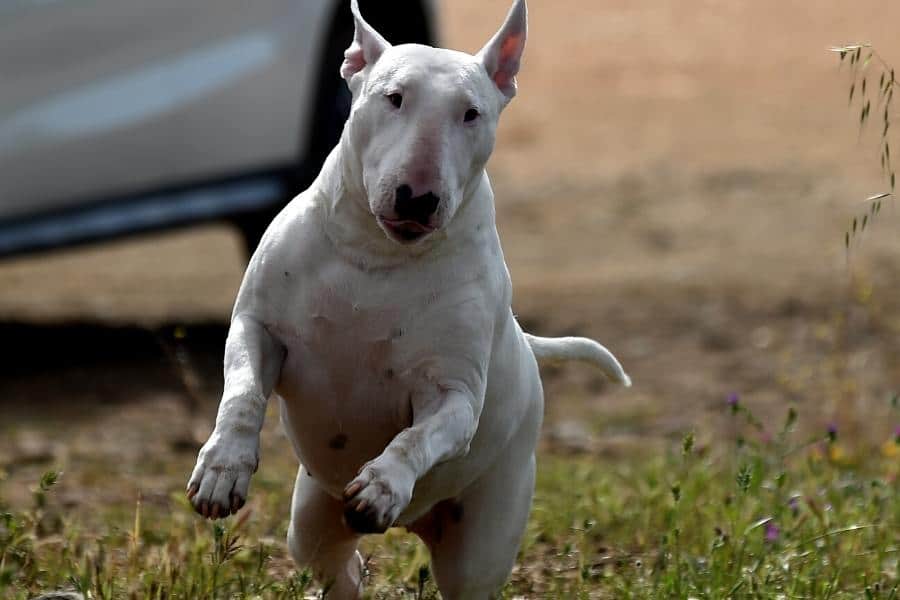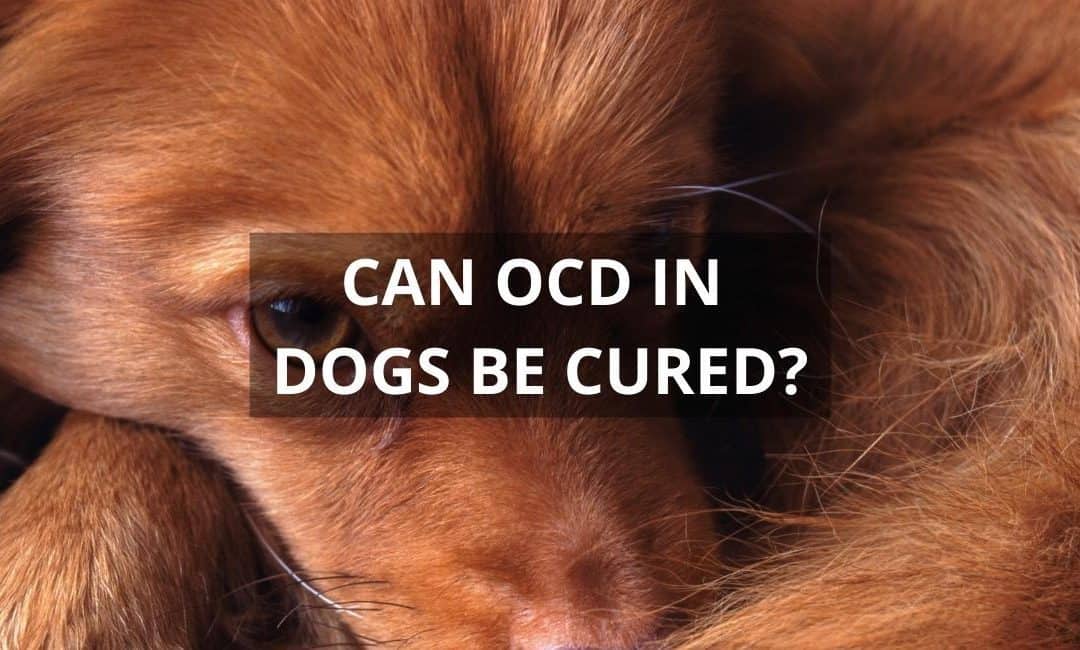Curing OCD behavior in dogs is difficult once it’s firmly established. Catching and addressing the behavior early gives the best chance of success. However, the more factors that drive the dog toward compulsive behaviors, the harder a cure will be.
With many cases of OCD in dogs, the goal will be to improve the behavior, rather than cure. And that improvement will require a well-rounded approach of training to improve the reaction, management of the environment to reduce stress and triggers, and often not only an increase in both physical and mental exercise and stimulation, but an adjustment of the owner-dog relationship.
Therapies to improve emotional balance often play a part when treating canine OCD, as well.
Prescription medications, natural remedies, and dietary adjustment can all be helpful in relieving anxiety and reducing overly impulsive tendencies in OCD-prone dogs.

Why is OCD so hard to cure in dogs?
True compulsive behaviors in dogs can be a challenge to cure. In addition to training, some dogs will need lifelong careful management.
Owners of dogs with compulsive disorders must be prepared to be as persistent as their dogs.
Realize and remember that, without an appropriate mental outlet, compulsive behaviors may fade, or may switch expression (your dog may exchange one compulsion for another), but the tendency will not generally go away completely.
Let’s look at some reasons why this can be such a tough problem to fix.
Triggers can generalize. Compulsive dog behaviors generally start in response to a particular stressor, like fear, anxious arousal, boredom, or neediness.
However, once the behavior becomes established, it can increase not only in in frequency, but in the type of situations that trigger it.
This tendency to generalize into more and more situations with less-than-obvious triggers makes early identification and treatment very important.
The “reward†is internal. Canine OCD behaviors typically develop as a means of resolving internal conflict or anxious arousal.
Repetitive behaviors can actually decrease heart rate and reduce arousal. What this means is, OCD behaviors can act to self-calm the dog.
Because of this, in many dogs, compulsive behavior will be very resistant to going away on its own.
Prevention can be difficult. Certain compulsive behaviors can be difficult to prevent completely without 24-hour watchfulness and intervention. And, although thankfully not common, some dogs may become aggressive when they’re restrained or prevented from practicing the compulsive behavior. This naturally makes the behavior more difficult to address, from a training perspective.
The difficulties discussed above aren’t meant to be discouraging, but rather to present a realistic picture of the challenges of curing compulsive behavior in dogs, especially once it has become firmly established.

What’s the Prognosis for a Dog with OCD?
There are several important factors that figure into whether a dog’s OCD treatment will have a successful outcome. Although no one can predict with 100% certainty if your individual dog will overcome OCD behaviors, factors that influence prognosis include:
Was the behavior was caught early, or did it have time to firmly establish? Canine compulsive disorders are more likely to be curable when the behavior is recognized and addressed early on. Once these behaviors become part of the dog’s repertoire, they can be much harder to stop.
Is your dog high strung and/or anxious and insecure? By itself, these are not strong determining factors for OCD, but combined with other factors, they contribute. Anxiety relief (either natural or medical) and getting your dog involved in confidence building activities may not cure, but can help reduce the severity of OCD in dogs.
Are there aspects of your dog’s environment, relationships, or daily routine that contribute to triggering OCD behavior? When these triggers can be avoided or modified, hope of a successful outcome is much greater.
Is your dog capable of being distracted from the behavior? Canine OCD is easier to resolve if the dog is capable of being redirected away from the behavior.
Are your dog’s compulsive episodes frequent, occasional, or rare? The less frequent the episodes, the better the chances of resolving it.
Is your dog of a breed known for a higher incidence of canine OCD? Genetic predisposition can be a strong influencing factor.
Does your dog have close family with a similar disorder? Again, this would indicate a genetic predisposition, meaning it could potentially be harder to overcome.
Obviously, each factor will have slightly different weight in the prognosis. I think it’s safe to say that the more factors a dog has, the more challenging it will be to significantly improve the behavior.
I hope you found this article helpful. If you did, please consider sharing it with your friends.Â
Best,
julie
(bio)
